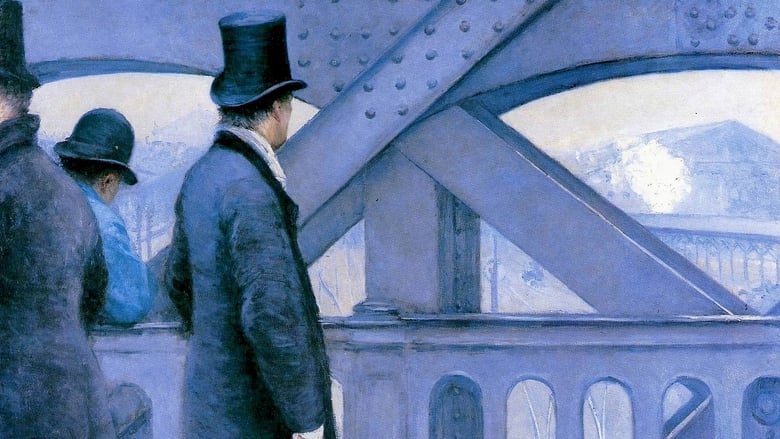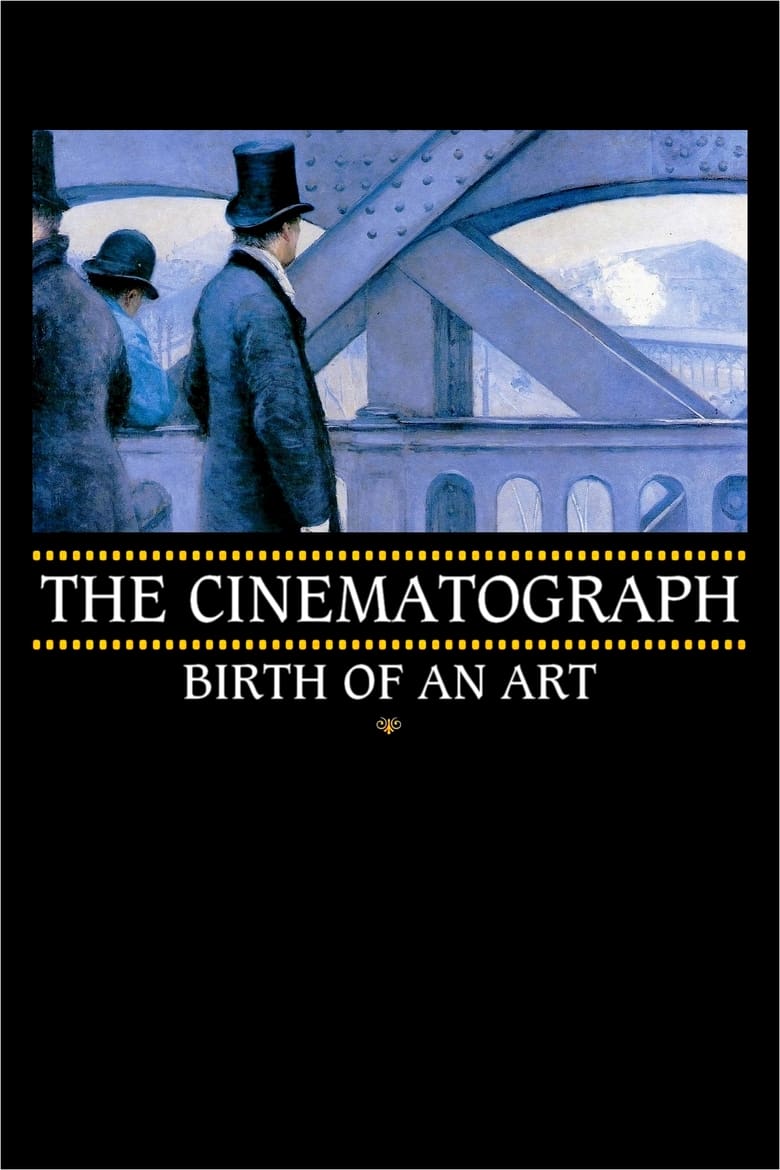Loading


The Cinematograph: Birth of an Art
Genres
DocumentaryHistoryTV Movie
Overview
Throughout the 19th century, imaginative and visionary artists and inventors brought about the advent of a new look, absolutely modern and truly cinematographic, long before the revolutionary invention of the Lumière brothers and the arrival of December 28, 1895, the historic day on which the first cinema performance took place.
Details
Budget
$0
Revenue
$0
Runtime
53 min
Release Date
2021-10-17
Status
Released
Original Language
French
Vote Count
6
Vote Average
7.2
Cast
Meet the talented actors who bring the movie to life.
Vimala Pons
Self - Narrator (voice)
Bertrand Lemoine
Self - Architecture Historian
Vanessa Schwartz
Self - Art Historian
Tacita Dean
Self - Artist
Paul Perrin
Self - Painting Curator
Mark Lewis
Self - Artist
Dominique Païni
Self - Film Curator
Marie Robert
Self - Photo Curator
Thierry Frémaux
Self - Institut Lumière Director
Christian Petzold
Self - Filmmaker
Olivier Assayas
Self - Filmmaker
Similar Movies
Explore movies similar to this one that you might also enjoy.
9.0
Riot at the Rite
In the spring of 1913, Parisian businessman Gabriel Astruc opens a new theater on the Champs Elysées. The first performance is the premiere of Igor Stravinsky's 'The Rite of Spring', danced by the Ballet Russes. The rehearsal process is extremely fraught: the orchestra dislike Stravinsky's harsh, atonal music; the dancers dislike the 'ugly' choreography of Vaslav Nijinsky. The volatile, bisexual Nijinsky is in a strained relationship with the much older Sergei Diaghilev, the Ballet Russes' charismatic but manipulative impresario. Public expectation is extremely high after Nijinsky's success in 'L'apres-midi d'un faune'. Finally, 'The Rite of Spring' premieres to a gossip-loving, febrile, fashion-conscious Parisian audience sharply divided as to its merits.
2005-10-18 | en
6.4
The Lady and the Duke
Grace Dalrymple Elliot is a British aristocrat trapped in Paris during the French Revolution. Determined to maintain her stiff upper lip and pampered life despite the upheaval, Grace continues her friendship with the Duke of Orléans while risking her life and liberty to protect a fugitive.
2001-09-07 | fr
0.0
Cartoon College
Every fall, The Center for Cartoon Studies invites 20 aspiring cartoonists to White River Junction, Vermont for a no-holds-barred education in comics. Those who complete the two-year program earn a Master of Fine Arts degree and are ready to face the hardship of a career in one of the world's most drudgery-inducing art forms. This is their story.
2012-04-01 | en
3.8
Lenin in Paris
1911. Lenin organizes the first Bolshevik party school near Paris, in the small town of Longjumeau. Through a chain of historical parallels and associations, this time is intertwined with the events of the Paris Commune, the October Revolution and the political struggles of the post-revolutionary years.
1981-11-01 | ru
7.7
The 'Frankenstein' Files: How Hollywood Made a Monster
The history of Frankenstein's journey from novel to stage to screen to icon.
2002-11-01 | en
9.0
L'Adieu à Solférino
2019-02-16 | fr
6.3
Bluebeard
Paris, France, during the First World War. While thousands of soldiers die every day on the battlefields, Henri Landru, a seemingly respectable furniture dealer, married and father of four children, relentlessly feeds his own sinister factory of death.
1963-01-25 | fr
7.5
The French Revolution
A history of the French Revolution beginning from the decision of the king to convene the Etats-Generaux in 1789 in order to deal with France's debt problem. Part one spans the event until August 10, 1792 (when the King Louis XVI lost all authority and was imprisoned). Part two carries the story through the end of the terror in 1794.
1989-05-10 | fr
6.5
El joven Berlanga
The early days of the future genius of Spanish cinema Luis García Berlanga, from his birth in Valencia in 1921 to his departure to Madrid in 1947 to become a filmmaker.
2022-10-26 | es
7.2
Les Misérables
In 19th century France, Jean Valjean, a man imprisoned for stealing bread, must flee a relentless policeman named Javert. The pursuit consumes both men's lives, and soon Valjean finds himself in the midst of the student revolutions in France.
1998-05-01 | en
5.5
The Way South
Johan van der Keuken went against the grain in 1980: from Amsterdam (on April 30 with the coronation riots and squatting actions) via Paris, southern France and Italy to Egypt. He made his personal travelogue in three parts for VPRO television. Later, he fused the three parts into one long movie.
1981-01-01 | nl
0.0
France 1939: One Last Summer
Gustave Folcher, a French farmer, wrote in his 1939 diary that the summer had been long and hot. He was not alone. Many other anonymous French men and women wrote of the beauty and warmth of those summer months and how threats of war were far from their minds. Through home movies, diaries and letters, One Last Summer describes the final weeks of peace in France and the mix of blindness, denial and prophetic clear-sightedness of those facing the war that was about to unfold.
2019-05-30 | fr
0.0
Brigitte macron, un roman français
2018-01-01 | fr
7.0
Omar Sharif: Citizen of the World
Several high-budget epic films became Omar Sharif (1932-2015) a film star. He was an actor, but also a bridge player, a womanizer, a bon vivant; he was a man full of contradictions, who enjoyed card games more than movies; he was an eternal nomad who spent half his life in a hotel.
2020-02-15 | de
0.0
Der Schatz von Timbuktu, die Geschichte einer Rettung
2017-02-22 | de
7.5
Les Trésors du Paris haussmannien
2022-12-19 | fr
5.3
A Forbidden Orange
Spain, 1970s. A Clockwork Orange, a film considered by critics and audiences as one of the best works in the history of cinema, directed by Stanley Kubrick and released in 1971, was banned by the strict Franco government. However, the film was finally premiered, without going through censorship, during the 20th edition of the Seminci, the Valladolid Film Festival, on April 24, 1975. How was this possible?
2021-10-23 | es
6.5
Amour
Using a rostrum camera, Raymond Depardon films a long series of photos, from the narrow streets of Paris to the endless desert, accompanied by original sounds of the city. A Cartier Foundation initiative for the contemporary arts.
1997-01-01 | fr
4.8
Searching for Oscar
Óscar Peyrou is a veteran Spanish film critic who writes his reviews according to a very peculiar method: in his opinion, it is not really necessary to watch the films since it is possible to judge them simply by looking at their promotional poster.
2019-03-29 | es
0.0
Les Dessous Secrets de Paris
2017-05-02 | fr